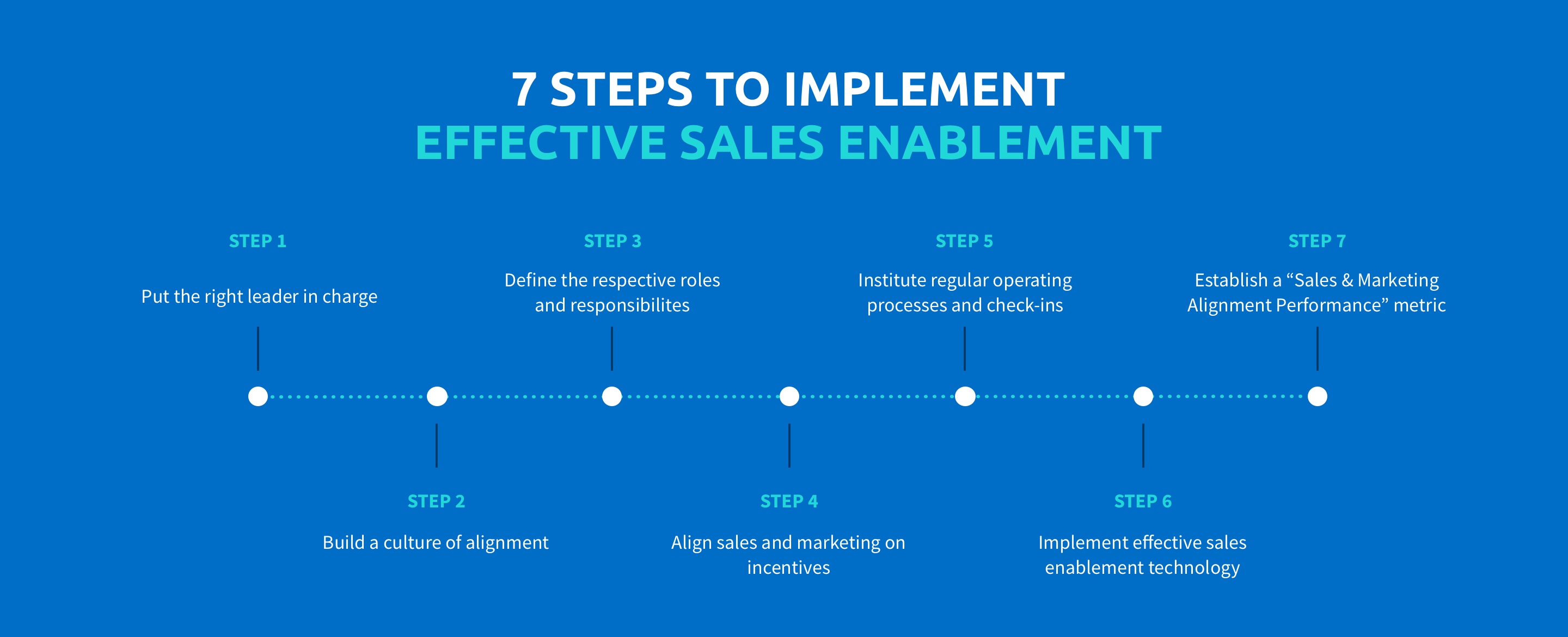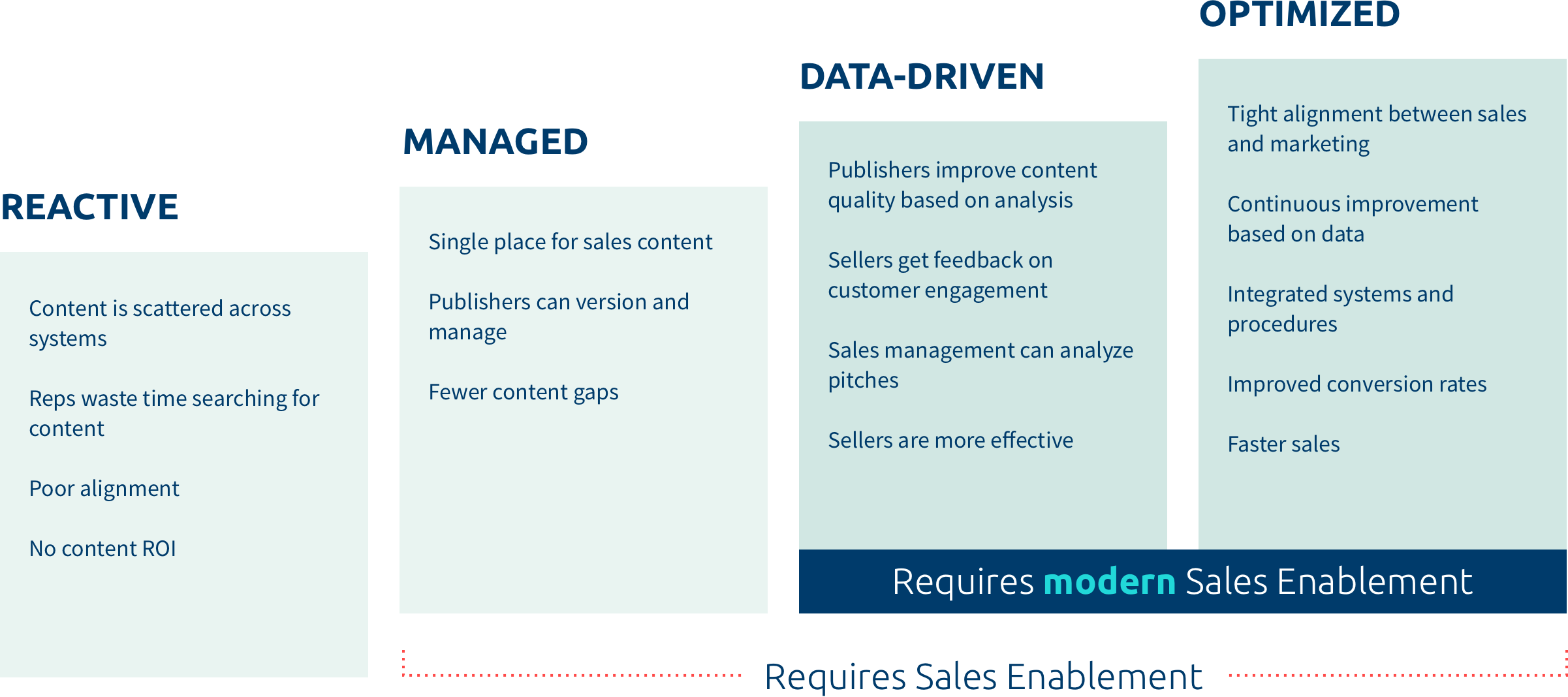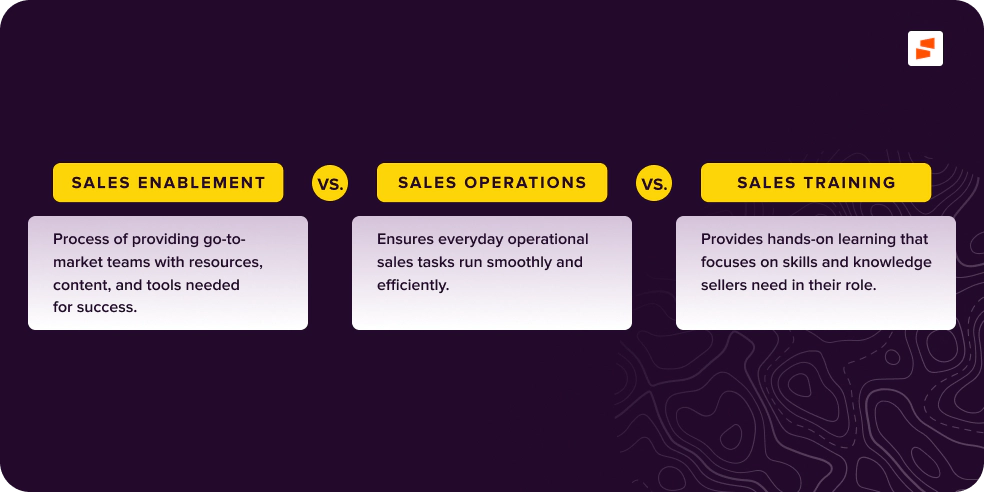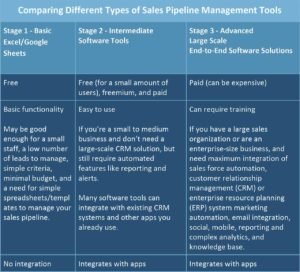Sales Enablement software plays a critical role in driving sales enablement by streamlining processes, enhancing productivity, and improving customer relationships. Its functionalities include automation, data analysis, and communication tools that empower sales teams to effectively manage leads, track prospects, and close deals.
With the right sales software in place, businesses can accelerate their sales cycles, improve forecasting accuracy, and increase overall revenue. Whether it’s tracking customer interactions, managing sales pipelines, or generating insightful reports, sales software provides the necessary tools and insights for sales teams to optimize their performance and drive success.
In today’s competitive market, leveraging sales software is essential for businesses to stay ahead of the game and achieve their sales objectives.
The Importance Of Sales Enablement
Sales enablement refers to the strategic process of empowering sales teams with the right tools, information, and resources to effectively engage with prospects and close deals. In today’s competitive business landscape, sales enablement has become crucial for organizations aiming to drive revenue growth, improve sales productivity, and enhance customer satisfaction. By providing sales teams with the necessary support and guidance, sales enablement plays a pivotal role in aligning marketing and sales efforts, improving collaboration, and ultimately, boosting overall sales performance.
Definition Of Sales Enablement
Sales enablement is a holistic approach that combines technology, processes, and content to equip sales teams with the necessary skills, knowledge, and resources to navigate the buyer’s journey successfully. It involves providing sales reps with tools and training to effectively communicate the value of products or services, aligning marketing and sales efforts to generate qualified leads, and utilizing data and analytics to monitor and optimize sales performance.
Benefits Of Sales Enablement
Improved Sales Productivity
A key benefit of sales enablement is improved sales productivity. By equipping sales teams with tools and resources tailored to their needs, sales enablement helps streamline processes, eliminate manual tasks, and enable reps to focus on selling. This leads to reduced administrative burdens and increased time spent in direct customer interactions, resulting in higher productivity and improved sales performance.
Enhanced Sales Efficiency
Sales enablement also enhances sales efficiency by providing reps with easy access to relevant content, sales collateral, product information, and sales playbooks. This enables them to quickly and effectively communicate the value proposition to prospects, address objections, and close deals faster. With readily available resources and centralized information, sales teams can efficiently navigate the sales process, resulting in shorter sales cycles and higher conversion rates.
Better Sales Alignment
Sales enablement acts as a bridge between marketing and sales teams, fostering better alignment between the two departments. By collaborating on content creation, defining buyer personas, and developing targeted sales strategies, marketing and sales can work together towards common goals, ensuring messages are consistent and effectively resonating with the target audience. This alignment maximizes the impact of marketing efforts, improves lead quality, and enables sales teams to effectively engage with prospects throughout the buyer’s journey.
Data-driven Decision Making
Sales enablement relies on data and analytics to track sales performance and identify areas for improvement. By utilizing sales software solutions, companies can gain valuable insights into sales activities, pipeline visibility, and customer interactions. These insights enable data-driven decision making, allowing organizations to optimize sales processes, identify bottlenecks, and develop targeted training programs that address skill gaps. This data-driven approach helps sales teams to continuously improve their performance, resulting in higher conversion rates and increased revenue.

Credit: www.highspot.com
Understanding Sales Software
Sales software plays a crucial role in sales enablement by enhancing efficiency and effectiveness. It streamlines processes, tracks customer interactions, and provides valuable insights, empowering sales teams to achieve their targets.
Definition Of Sales Software
Sales software, also known as sales enablement software, refers to a set of digital tools and technologies designed to streamline and optimize the sales process. It helps sales teams manage their tasks, collect and analyze data, and improve communication and collaboration within the team. From tracking leads and prospects to monitoring sales performance and generating reports, sales software provides a centralized platform to enhance sales productivity and effectiveness.
Types Of Sales Software
Sales software encompasses different types of tools that cater to various aspects of the sales process. Here are some common types of sales software: 1. Customer Relationship Management (CRM) software: CRM software is the backbone of sales management. It assists in organizing and managing customer data, tracking interactions, and analyzing customer behavior. With CRM software, sales teams can efficiently manage leads, contacts, and opportunities, while improving customer relationships and nurturing potential deals. 2. Sales prospecting tools: These tools help sales professionals identify and connect with potential leads. They provide contact information, social media insights, and other relevant data to help salespeople personalize their outreach and improve response rates. 3. Sales analytics software: Sales analytics software enables sales teams to measure and analyze sales performance, track revenue, and evaluate the effectiveness of their strategies. It provides valuable insights into sales trends, conversion rates, and customer behavior, helping sales teams make informed decisions and optimize their sales efforts. 4. Sales automation software: Sales automation software automates repetitive and time-consuming tasks such as data entry, email follow-ups, and appointment scheduling. This allows salespeople to focus on high-value activities like building relationships and closing deals.
Key Features Of Sales Software
Sales software comes equipped with a range of features designed to enhance sales efficiency and effectiveness. Some key features include: 1. Lead management: Effective sales software enables teams to track and manage leads from initial contact to conversion. It allows salespeople to assign leads, track progress, and prioritize follow-ups, facilitating a more systematic and organized approach to lead management. 2. Contact management: Sales software provides a centralized database for storing and managing contact information. It enables sales teams to access customer details, communication histories, and other relevant data, ensuring seamless communication and personalized interactions. 3. Sales pipeline management: With sales software, sales teams can visualize and manage their sales pipelines, keeping track of deals at different stages of the sales process. This feature allows managers to identify bottlenecks, forecast revenue, and allocate resources effectively. 4. Reporting and analytics: Sales software offers robust reporting and analytics capabilities, providing insights into key sales metrics. It generates real-time reports on sales performance, revenue, conversion rates, and other crucial metrics, helping teams identify trends, strengths, and areas for improvement. In conclusion, understanding sales software is essential for sales teams looking to optimize their processes and drive better results. With its various types and key features, sales software offers a comprehensive solution to empower sales professionals with the tools they need to succeed. Whether it’s managing leads, analyzing data, or automating tasks, sales software plays a vital role in sales enablement.
How Sales Software Enables Sales
When it comes to empowering sales teams and driving revenue growth, sales software plays a critical role. By leveraging advanced technology and automation, sales software enables sales teams to work more efficiently and effectively, ultimately leading to improved sales outcomes. In this article, we will explore how sales software enables sales by improving productivity, streamlining processes, and enhancing collaboration.
Improving Sales Productivity
Sales software empowers sales reps to be more productive and focused on revenue-generating activities. With features like customer relationship management (CRM), lead management, and email automation, sales teams can streamline their workflows and spend less time on administrative tasks. By automating manual processes, sales reps can allocate more time to engage with prospects, build relationships, and close deals. Sales software also provides actionable insights and analytics, enabling sales reps to prioritize their efforts and focus on high-value opportunities.
Streamlining Sales Processes
Sales software serves as a catalyst for process improvement by automating and simplifying various sales processes. From lead generation to deal closure, sales teams can leverage software solutions to streamline their workflows and eliminate bottlenecks. With tools like sales pipeline management, territory management, and sales forecasting, sales software helps teams stay organized, track progress, and identify areas for improvement. By optimizing sales processes, organizations can achieve greater efficiency, reduce sales cycle times, and drive better results.
Enhancing Sales Collaboration
Collaboration is essential for successful sales efforts, and sales software facilitates effective teamwork within sales teams and across departments. With features like document sharing, real-time messaging, and task management, sales software enables seamless communication and collaboration. Sales reps can collaborate on deals, share valuable resources, and seek assistance from subject matter experts, leading to improved decision-making and increased win rates. Additionally, sales software allows sales managers to monitor team performance, provide feedback, and facilitate knowledge sharing, fostering a culture of continuous improvement and learning.

Credit: www.highspot.com

Credit: seismic.com
Frequently Asked Questions On The Role Of Sales Software In Sales Enablement
What Is The Role Of Sales Enablement?
Sales enablement plays a crucial role in empowering sales teams to effectively engage with customers and close deals. It involves providing the necessary resources, tools, and training to enhance the sales process and drive revenue growth. Sales enablement ensures that sales professionals have the right information and support to meet customer needs and achieve sales targets.
What Is The Role Of Sales Enablement Toolkit Use On Sales Performance?
Sales enablement toolkit use plays a crucial role in enhancing sales performance by providing tools and resources to sales teams. It enables them to access relevant information, streamline processes and collaborate effectively, resulting in improved productivity and successful sales outcomes.
What Is The Role Of Content In Sales Enablement?
Content plays a crucial role in sales enablement. It helps educate and engage potential customers, enabling them to make informed purchasing decisions. Well-crafted content showcases the value of the product or service, addresses customer pain points, and builds trust, ultimately driving sales and revenue.
What Is Saas Sales Enablement?
SaaS sales enablement refers to the use of software as a service (SaaS) tools and strategies to enhance the effectiveness and efficiency of the sales process. It involves providing sales teams with the necessary resources and support to effectively engage with prospects, close deals, and increase sales.
Conclusion
Sales software plays a pivotal role in optimizing sales enablement strategies. By streamlining processes, providing real-time insights, and improving collaboration, sales teams can effectively engage customers and boost sales. From customer relationship management to lead generation and pipeline management, the right sales software empowers sales professionals with the tools to drive revenue growth.
With its numerous benefits and functionalities, integrating sales software has become a necessity for organizations in today’s competitive business landscape.




